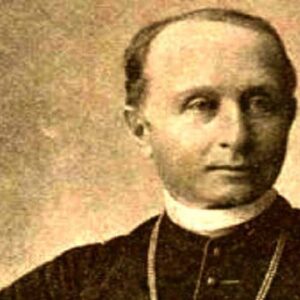Franjo Raki was a Croatian politician, historian, and author. Franjo Racki lived at the peak of nationalism in the nineteenth century, and when his homeland of Croatia was threatened by Hungarian expansionism, he sought a solution that would unite rather than divide the Balkans. Racki chronicled a number of old Croatian diplomatic and historical documents as a historian, politician, and writer, shedding light on the South Slav’s shared history, particularly across linguistic lines, while also expounding on Croatia’s own national significance. He was a forerunner in the Croatian national revival as well as a proponent of a united Yugoslavia in this way. His presence in various places was determined by his status as an ordained Catholic priest, and he used his time in Rome to write effectively on Croatian history. He was a key figure in the founding of the Yugoslavian Academy of Sciences and Arts, and he established the university’s archives, library, dictionary, and several magazines. He became a member of the Croatian Parliament in the latter part of his life, during which time he drew public attention to his ideas on Croatia’s national revival and the realization of a united Yugoslavia.
Early Years of Franjo
Racki was born on November 25, 1828, in Fuzine, near Rijeka. He continued his education at Senj and Varazdin, where he earned a theology degree.
In 1852, while still in Senj, he was ordained as a Catholic priest by Bishop Ozegovic. In Vienna, he received his PhD in theology three years later.
Career of Franjo
Racki began his career in Senj as a teacher and historian. He organized the research of Glagolitic documents on the Kvarner islands as his first step as a historian. This research led to his first major work, ‘The Age and Activities of Saints Cyril and Methodius, the Apostles among the Slavs,’ which was published in English as ‘The Age and Activities of Saints Cyril and Methodius, the Apostles among the Slavs.’ Racki’s determination to unearth both specifically Croatian and universally Slav history should be measured against the significance of this first piece.
As a priest, he was required to move to Rome in 1857, and while there, he worked for three years at the Croatian Institute of St. Jerome. More importantly, he searched Roman archives for documents on Croatian history, allowing him to contribute to the Croatian National Revival movement at the time.
Racki was an important figure in the founding of the Yugoslav Academy of Sciences and Arts. The academy was founded in 1861 to “bring together the best minds […] and find a way in which books in the national languages could be produced in the Slavic South,” as its benefactor, Josip Juraj Strossmayer, put it.
With Racki as its first Chairman, the academy’s priorities for the next several decades were established during its infancy; Racki’s guidance can be credited with the academy’s emphasis on Yugoslavian social and cultural identities.
Work in Politics
Racki was elected to the Croatian Parliament as the church representative of Senj in the same year as the academy was founded. He was able to pursue his goals of bringing government and public attention to Balkan nationalism and pan-Slavic potentialities from this vantage point.
He advocated for the unification of Dalmatia with Croatia, wrote articles about the Croatian nature of Srijem and Rijek, and studied the Croatian-Hungarian relationship (fighting against Hungarian expansionism).
During this time, his friendship with Bishop Josip Juraj Strossmayer grew stronger, as they both worked to promote cultural and political unity among South Slavs, as well as the idea of Yugoslavia.
Major Projects of Franjo
Racki’s works have a recurring theme of drawing on existing literary traditions in order to facilitate cultural unification through shared linguistic aspects. He aided the Illyrian movement’s cause of using linguistics as a unifying factor among South Slavs in this way.
Most of the Yugoslavian Academy of Sciences and Arts’ editions are still in print today, including Rad, Starine, and the Codex diplomaticus Regni Croatiae, Dalmatiae et Slavoniae, which is an exceptional legal history monument. In addition, he established the Academy library, archive, and dictionary.
Bogomili I Patareni was his first book, and it uncovered new research on the Bosnian Church. Racki established the “Bogomil hypothesis” in it. His theory was controversial, but it remained relevant throughout the nineteenth and twentieth centuries.
His ‘Documenta historiae Croaticae periodum antiaquam illustrantia’ is a collection of sources for Croatian history in the early Middle Ages. The text is still in use today, though it could use some reworking in terms of composition.
Personal History and Enduring Legacy
Franjo Racki died in Zagreb on February 13, 1894. Racki’s most visible monument to the world is still the Yugoslavian Academy.
Estimated Net Worth
Franjo is one of the wealthiest historians and one of the most well-known historians. Franjo Racki’s net worth is estimated to be between $1-2 million, according to Wikipedia, Forbes, and Business Insider.


